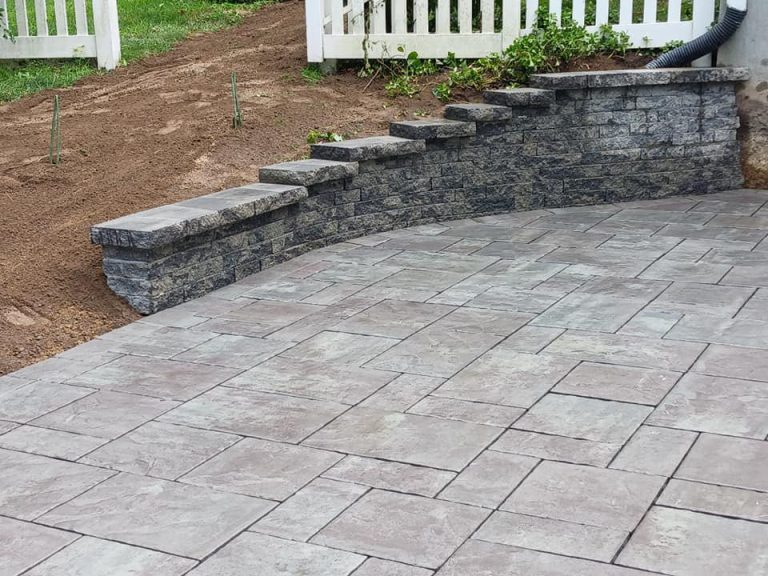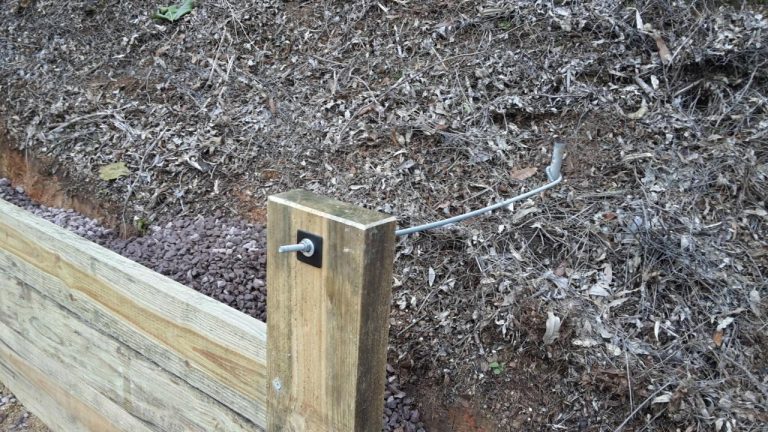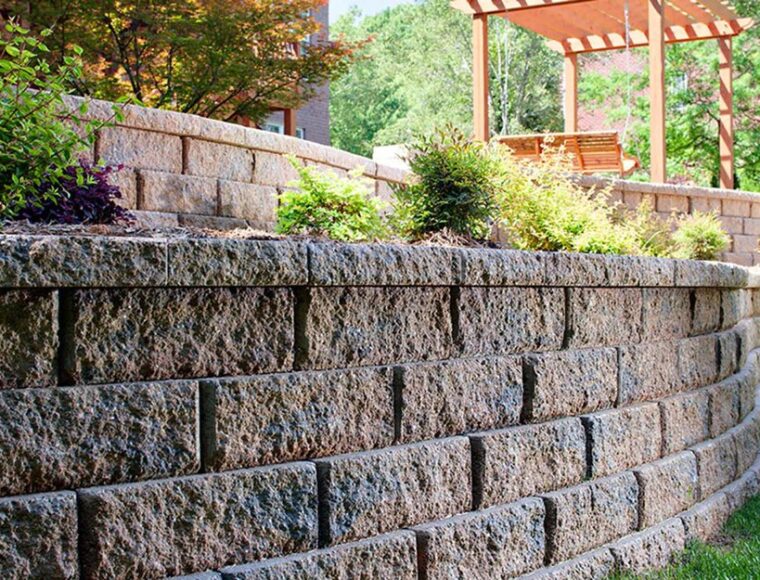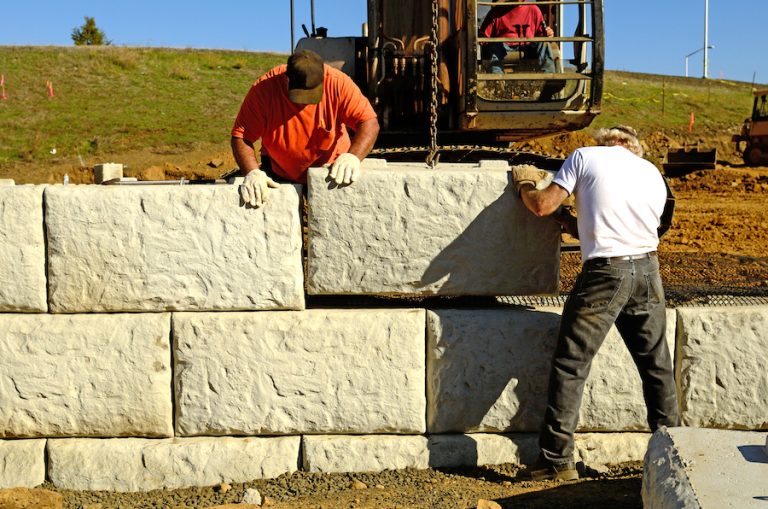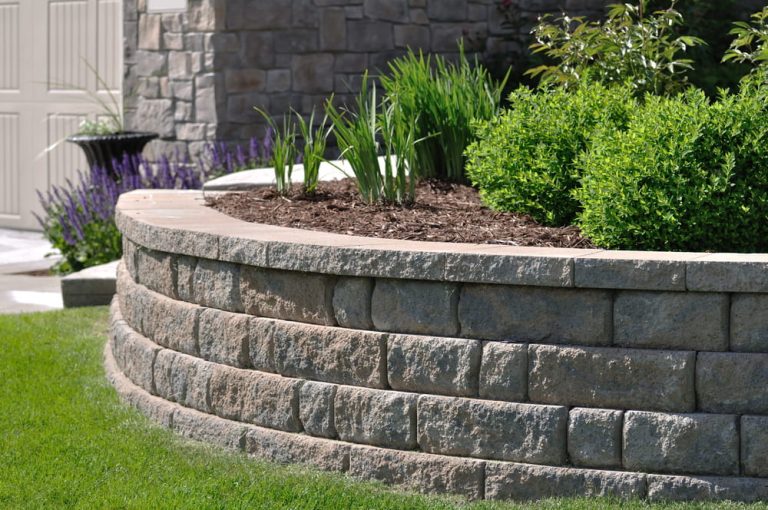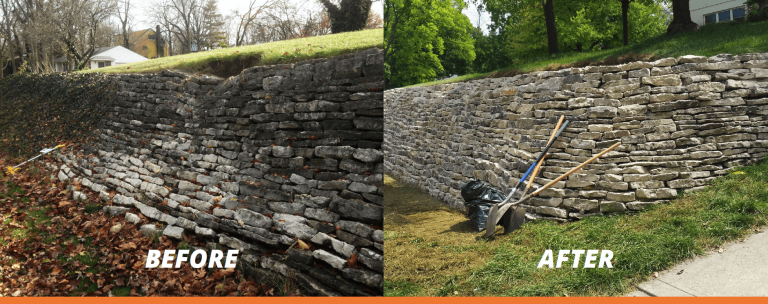Stone Retaining Wall Contractors Near Me Your Guide
Finding stone retaining wall contractors near me is crucial for a successful project. This guide provides five effective search methods, helping you evaluate contractors based on their portfolios, testimonials, and service areas. We’ll delve into typical services, design options, pricing structures, and the essential steps for planning and executing your retaining wall project.
From initial research to final installation, we cover the critical steps in choosing the right contractor for your needs. We explore the key factors to consider when evaluating contractors, including their experience, expertise, and payment terms. A comprehensive checklist will assist you in making an informed decision.
Local Contractor Search: Stone Retaining Wall Contractors Near Me
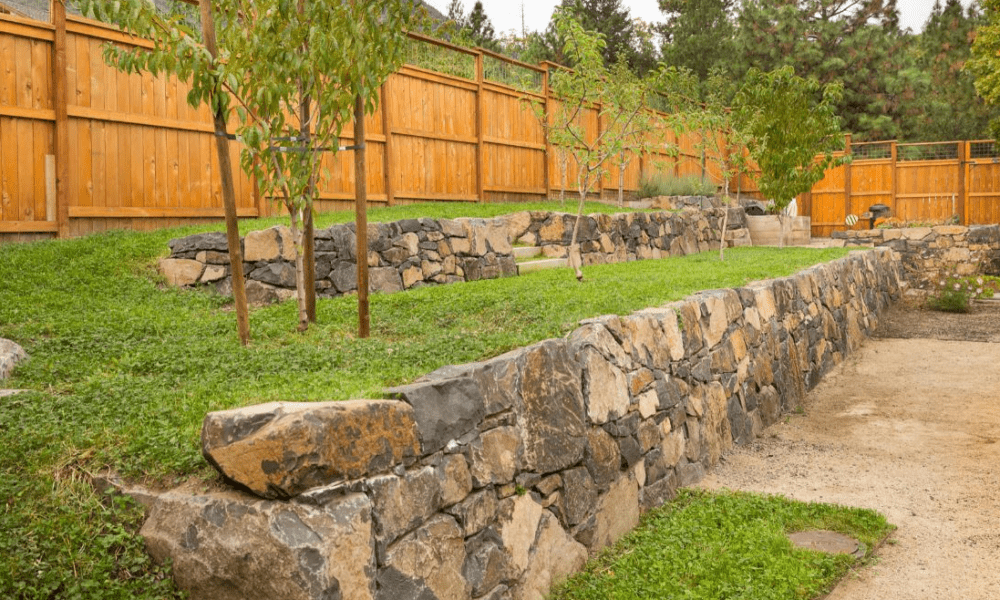
Source: techbullion.com
Finding the right stone retaining wall contractor for your project requires a strategic approach. Thorough research and careful evaluation are key to ensuring a successful and satisfactory outcome. This process involves exploring various avenues to locate qualified contractors in your area, examining their credentials, and ultimately selecting a contractor that aligns with your specific needs and budget.
Understanding the diverse methods available for contractor searches is crucial. This section provides several avenues for identifying suitable contractors, followed by essential considerations for evaluating their qualifications and services.
Contractor Search Methods
Several methods exist for locating qualified stone retaining wall contractors in your area. These methods range from leveraging online resources to networking with local professionals.
- Online Search Engines: Utilizing search engines like Google, Bing, or DuckDuckGo, coupled with location-specific searches, can yield a comprehensive list of local contractors. This method allows for a broad initial search, and filtering results by proximity can narrow down the list to those closest to you.
- Online Contractor Directories: Specialized online directories focusing on construction professionals, such as Angie’s List or HomeAdvisor, provide detailed profiles of contractors. These platforms often include customer reviews, project portfolios, and contact information, enabling a streamlined evaluation process.
- Local Business Listings: Platforms like Yelp or Yellow Pages offer local business listings that may include stone retaining wall contractors. These resources can provide valuable insight into contractor reputations and service areas, and often include customer reviews.
- Referrals: Seeking referrals from trusted friends, family, or neighbors can be an effective strategy. Personal recommendations can offer valuable insights into a contractor’s reliability and work quality.
- Professional Organizations: Contacting local chapters of professional construction organizations can provide a curated list of qualified contractors. These organizations often have rigorous membership requirements, ensuring a higher standard of professional conduct.
Evaluating Contractor Websites
Assessing contractor websites is an essential step in the selection process. Websites often serve as a crucial point of contact, providing a wealth of information about a contractor’s capabilities and past work.
- Portfolio Review: Contractor websites should showcase a diverse portfolio of completed projects. Visual examples of retaining walls, including details on materials, dimensions, and design aesthetics, are invaluable. Pay attention to the quality of images and the level of detail provided.
- Client Testimonials: Positive client testimonials provide invaluable insights into a contractor’s work ethic and customer service. Look for testimonials that highlight specific aspects of the contractor’s service, such as punctuality, communication, or problem-solving abilities.
- Service Area: Verify that the contractor’s service area encompasses your location. This avoids potential issues with logistical challenges or travel costs later in the project.
Contractor List
This table presents sample information for contractors. Note that contact details, service offerings, and reviews are illustrative and may not reflect real-world data.
| Contractor Name | Contact Information | Services Offered | Customer Reviews |
|---|---|---|---|
| Apex Retaining Walls | (123) 456-7890, apexwalls@email.com | Stone retaining walls, landscaping, and drainage | High ratings for quality and timely completion. |
| Stone Masters | (987) 654-3210, stonemasters@email.com | Custom stonework, patios, and retaining walls | Positive feedback on craftsmanship and design. |
| Reliable Retaining Solutions | (555) 123-4567, reliablewalls@email.com | Concrete and stone retaining walls, site preparation | Mixed reviews, some highlighting issues with communication. |
| Green Valley Walls | (111) 222-3333, greenvalleywalls@email.com | Eco-friendly retaining walls, natural stone, and drainage | Positive feedback on sustainability and design. |
| Modern Stone Creations | (000) 123-4567, modernstone@email.com | Modern retaining walls, design consultation, and installation | High ratings for design and modern aesthetics. |
Contractor Services & Pricing
Stone retaining walls are a valuable addition to any property, enhancing both aesthetics and functionality. Finding the right contractor for the job is crucial for a successful outcome. Understanding the services offered, the diverse design options, and the associated pricing structures is essential for homeowners planning such a project.
Contractors typically offer a comprehensive range of services to ensure a complete project. From initial design and material selection to the actual installation and even ongoing maintenance, these professionals provide a holistic approach. This meticulous attention to detail is key to ensuring the longevity and integrity of the retaining wall.
Typical Contractor Services
Contractors typically handle the entire process, from initial design and material selection to installation and, in some cases, ongoing maintenance. This encompasses site preparation, excavation, foundation work, stone placement, and finishing touches like landscaping. Experienced contractors often possess a deep understanding of local building codes and regulations, ensuring compliance throughout the project.
Stone Retaining Wall Designs, Stone retaining wall contractors near me
Different stone retaining wall designs offer varying aesthetic appeal and structural benefits. A simple, straight retaining wall might be suitable for a modern landscape, while a more complex, curved design might suit a traditional or natural-style garden. The choice depends on the property’s overall aesthetic and the desired level of privacy or definition. Considerations include the type of stone used, the height of the wall, and the slope of the ground.
Types of Retaining Wall Materials and Their Benefits
Natural stone retaining walls often provide a rustic and classic look, while engineered stone options can offer similar aesthetics with enhanced durability and cost-effectiveness. Concrete retaining walls are another common choice, known for their strength and ability to handle larger volumes of earth. Each material has specific benefits, from aesthetic appeal to longevity and structural capacity.
Pricing Structure for Retaining Walls
| Wall Size (linear feet) | Material Type | Complexity (e.g., curved, stepped) | Estimated Price Range ($) |
|---|---|---|---|
| 20 | Natural Stone | Straight | $3,000 – $5,000 |
| 30 | Engineered Stone | Curved | $5,000 – $8,000 |
| 40 | Concrete | Stepped | $7,000 – $12,000 |
Note: These are estimated ranges. Actual costs will vary depending on site conditions, labor rates, material availability, and any additional features or specifications. A detailed quote will be essential for accurate pricing.
Requesting Detailed Cost Estimates
To obtain accurate cost estimates, homeowners should provide detailed information about their project to contractors. This includes the desired wall height, length, and design; the type of stone or material preferred; and any unique features or specifications. A site visit is often necessary to assess the ground conditions and evaluate the project’s specifics. Providing this comprehensive information allows contractors to accurately assess the scope of work and provide precise pricing. A comprehensive list of questions and a clear description of the desired project are crucial for receiving a reliable estimate. Homeowners should ask for detailed breakdowns of labor costs, material costs, and any potential permits or licenses required.
Project Planning & Design
Planning a stone retaining wall project requires careful consideration of various factors to ensure a successful and durable outcome. Proper planning, from initial site assessment to final permitting, is crucial for avoiding costly revisions and delays later in the process. This involves understanding the specific needs of the project, considering local regulations, and establishing a realistic timeline.
Careful planning and design are essential to the success of any stone retaining wall project. This involves a thorough understanding of the site’s conditions, drainage requirements, and structural considerations. Effective communication with the contractor throughout the process ensures a shared vision and facilitates a smooth execution.
Key Steps in Planning a Retaining Wall Project
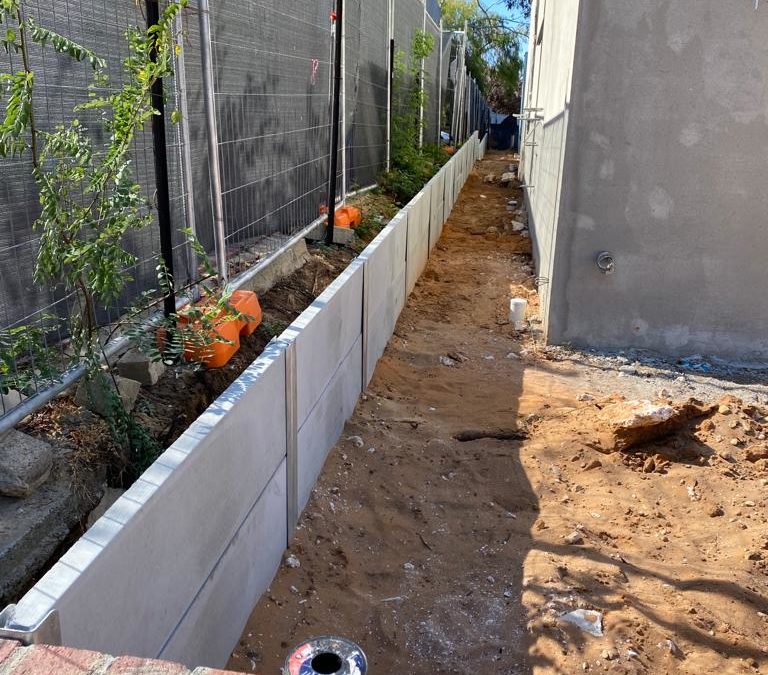
Careful planning is paramount for a successful retaining wall project. Three crucial steps are site evaluation, design specifications, and obtaining necessary permits.
- Site Evaluation: A thorough site assessment is the foundation of any successful retaining wall project. This includes identifying the soil type, slope angle, and presence of any existing utilities or obstacles. Accurate site measurements and detailed documentation are vital for precise design and cost estimations.
- Design Specifications: Once the site is evaluated, the design phase begins. This involves determining the appropriate height, length, and materials for the wall. Important considerations include the wall’s intended function, aesthetic goals, and budget constraints. Design specifications should also address drainage solutions and structural considerations to ensure stability.
- Permitting and Licensing: Obtaining necessary permits and licenses is crucial for legal and safe construction. Local building codes and regulations often dictate the requirements for retaining walls, including setback distances, height restrictions, and necessary inspections. Failure to comply with these regulations can lead to project delays or even legal issues.
Essential Factors in the Design Phase
The design phase is critical for a well-executed project. Several key factors need to be considered during this stage.
- Site Assessment: A comprehensive site assessment includes detailed topographical surveys, soil analysis, and identification of potential challenges like existing vegetation, utility lines, or unstable ground conditions. This crucial step allows for the design to accommodate these factors and prevent future issues.
- Drainage Solutions: Proper drainage is essential to prevent water damage and erosion. Designers should incorporate weep holes, French drains, or other appropriate drainage systems to manage water runoff and prevent water accumulation behind the wall. This consideration is vital to the long-term stability and integrity of the wall.
- Structural Considerations: The retaining wall’s design must address the weight and pressure of the soil and the potential for seismic activity. Appropriate structural calculations and material selection are critical for ensuring the wall’s stability and longevity. Using reinforced materials or adding additional support elements as needed is important for preventing failure.
Importance of Permits and Licenses
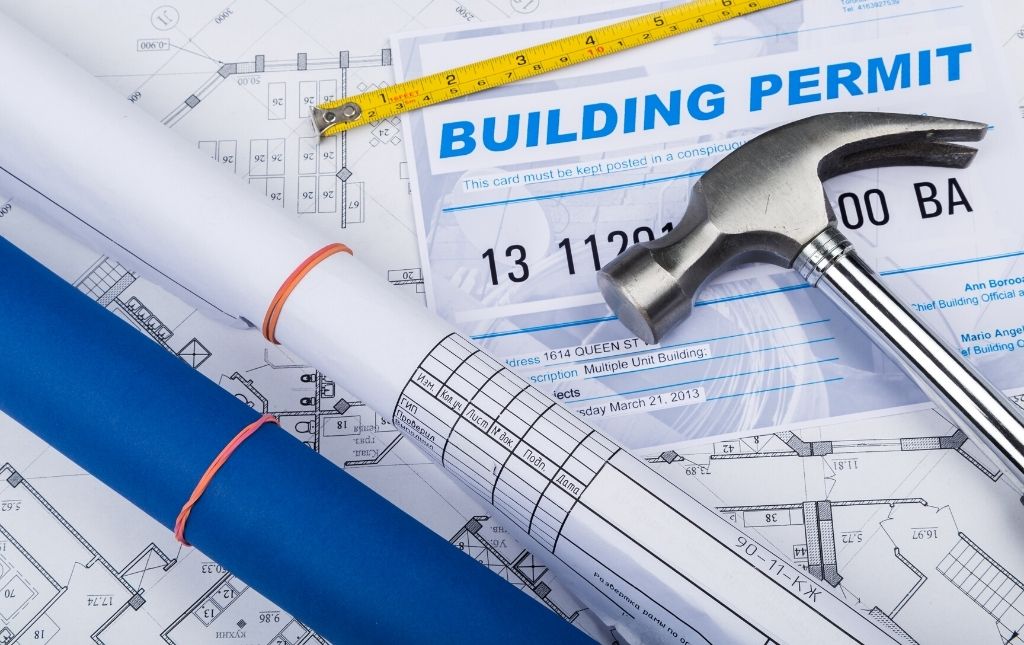
Compliance with local regulations is crucial for a smooth and legal construction process.
- Legal Compliance: Obtaining necessary permits and licenses ensures compliance with local building codes and regulations, avoiding potential fines or project delays. These documents verify that the project meets local safety standards and prevents legal complications.
- Safety Standards: Permits and licenses typically require adherence to specific safety standards for construction. This ensures that the construction process adheres to safety protocols, protecting workers and the surrounding environment.
Project Timeline
A well-structured timeline is essential for managing expectations and coordinating activities.
| Phase | Duration (Estimated) |
|---|---|
| Site Preparation | 1-2 weeks |
| Design and Permitting | 2-4 weeks |
| Material Procurement | 1-2 weeks |
| Construction | 2-4 weeks |
| Inspection and Finalization | 1 week |
| Total Project Duration | 6-12 weeks |
Choosing the Right Contractor
Selecting the right stone retaining wall contractor is crucial for a successful project. Thorough research and careful evaluation of potential candidates will ensure the job is completed to your satisfaction and within budget. Understanding the contractor’s experience, payment methods, and contractual agreements is essential for a smooth process.
Careful consideration of various aspects, such as the contractor’s experience and financial stability, is paramount. This involves understanding the contractor’s qualifications and ensuring they possess the necessary expertise and resources to handle the complexity of the project.
Critical Questions to Ask Potential Contractors
Effective communication with potential contractors is essential to evaluate their competence and reliability. Asking targeted questions will help assess their understanding of your project’s specifics. Key questions to ask during consultations include inquiries about their experience with similar projects, their understanding of local regulations, and their approach to project management. Questions about their experience, certifications, and liability insurance are also crucial for evaluating their preparedness and commitment. This ensures a contractor understands the nuances of your project.
Evaluating Contractor Experience and Expertise
A contractor’s experience directly impacts the quality and timeliness of the work. Assessing a contractor’s experience involves examining their past projects. Look for portfolios showcasing similar stone retaining wall constructions, including details about the size, complexity, and challenges faced in previous projects. A contractor’s track record of successful projects is an indicator of their proficiency and reliability. Verify if they have any relevant licenses, certifications, or memberships in professional organizations, such as the Associated Builders and Contractors. This demonstrates adherence to industry standards.
Comparing Payment Methods and Contractual Agreements
Different contractors offer various payment methods and contractual agreements. Understanding these variations is crucial to making an informed decision. Some contractors may offer upfront payment plans, while others might use progress payments. Evaluate these payment terms and how they align with your budget and timeline. Thoroughly review the contract to ensure it includes the project scope, payment schedule, timelines, and dispute resolution procedures. The contract protects both parties’ interests and defines responsibilities.
Contractor Evaluation Checklist
This checklist helps you evaluate potential contractors effectively:
- Project Portfolio Review: Examine their past projects, noting the scope, complexity, and quality of the completed retaining walls. Look for examples of projects similar to yours in terms of materials, size, and design. This provides a visual understanding of their skills.
- Experience and Expertise Verification: Inquire about their experience with stone retaining wall construction and their familiarity with local building codes and regulations. Confirm if they possess relevant licenses and insurance coverage.
- Payment and Contractual Terms Analysis: Understand their payment methods and contractual terms thoroughly. Review the contract carefully to ensure all aspects, including timelines, liabilities, and dispute resolution, are clearly defined.
- References and Recommendations: Request references from previous clients and check their testimonials. These provide insights into the contractor’s work ethic, communication skills, and ability to meet deadlines.
- Communication and Professionalism Assessment: Evaluate their responsiveness, communication style, and professionalism during the consultation process. Assess their understanding of your project needs and their ability to address potential concerns.
Conclusion
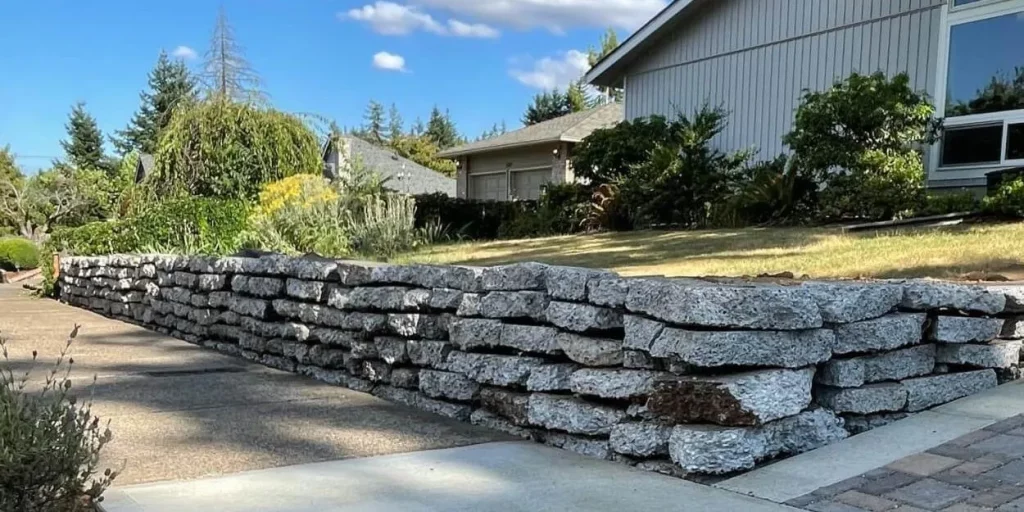
This comprehensive guide provides a roadmap to finding and selecting the perfect stone retaining wall contractors near you. By understanding the search methods, services, pricing, and crucial project planning steps, you’re empowered to make well-informed decisions. Remember to carefully consider contractor experience, expertise, and payment options. Ultimately, a well-planned project leads to a beautiful and functional retaining wall that enhances your property.
